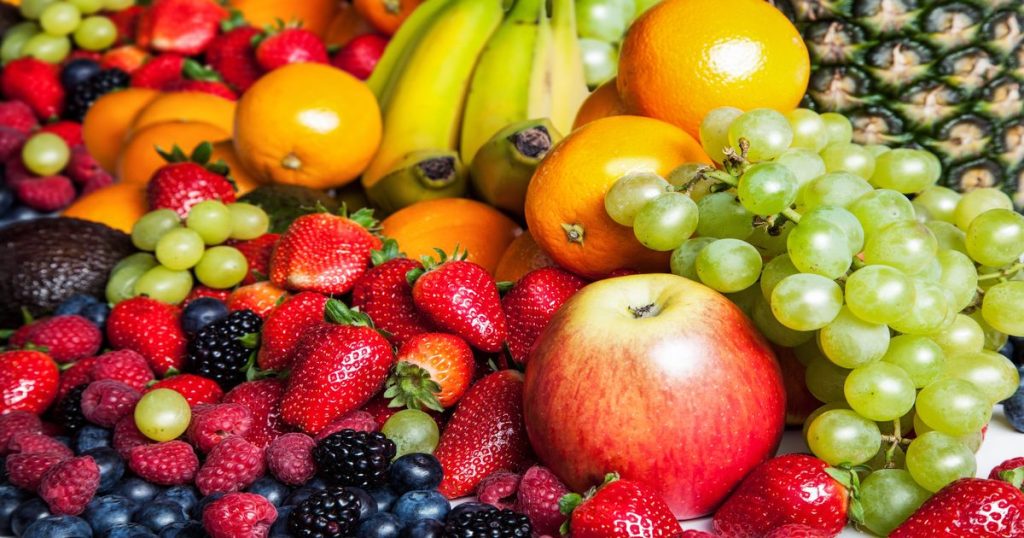Video LoadingVideo UnavailableClick to playTap to playThe video will auto-play soon8CancelPlay now Waitrose will remove best-before dates on hundreds of fresh food products in a bid to reduce food waste. The aim is to get customers to use their personal judgement and not rely on the best-before date which could mean throwing away food that is perfectly fine and safe to eat. As reported by Express, Waitrose will remove best-before dates on packaged fruit and vegetables from September. Other supermarkets have taken steps to reduce food waste as they face growing pressure from sustainability groups. Trailblazer Tesco was the first of the supermarket giants to remove best-before dates, scrapping them on 100 fresh food products in 2018.
Waitrose joins Tesco and Marks & Spencer in a sustainability drive to avoid wasting food
(Image: Instagram/ Peckham FoodCycle)
Read More
Related Articles
‘I tried intuitive eating for a week and it changed my relationship with food’
Read More
Related Articles
Inside Zara and Mike Tindall’s unusual eating habits including separate meals and daily takeaways
More recently, Marks & Spencer joined the anti-best-before-date movement by removing dates earlier this month from more than 300 fruit and vegetable products following a successful trial. Marija Rompani, director of sustainability and ethics at John Lewis Partnership, which owns Waitrose, said: “UK households throw away 4.5 million tonnes of edible food every year. This means that all the energy and resources used in food production is wasted. “By removing best-before dates from our products, we want our customers to use their own judgment to decide whether a product is good to eat or not. This in turn will increase its chances of being eaten and not becoming waste.
Waitrose is the latest supermarket to stamp out best-before dates in a move to champion sustainable eating and limit food waste
“By using up existing fresh food in our homes, we can also save on our weekly household food shop, which is becoming an increasingly pressing concern for many. Best-before dates are designed to show food quality rather than how safe it is eat.” Difference between best-before dates and use-by dates Use-by dates A use-by date relates to food safety and is the most important date to remember. You can consume food until and on the use-by date but not after. Foods marked with a use-by date are usually products that go off quickly. These include salad or fruit bowls that contain cut up produce, fresh chicken breasts or meat. Best-before dates A best-before date which is sometimes shown as BBE (Best Before End) relates to food quality and not food safety. This means that food eaten after this date will be safe, but not at optimum quality. Its texture and flavour might be impacted but it will be perfectly safe to eat. Foods that best-before dates appear on include frozen peas, ice-cream, dried pasta and baked beans cans. What is key is that a best-before date will only be accurate if the food is stored according to the instructions on the packaging. If the food is stored incorrectly, for example if you forget to freeze a frozen product and it defrosts, this could impact and reduce the best-before date. What you can do to check if your best-before product is safe to eat There is one thing you can do to check if your food stamped with a best-before date is safe to eat. According to Food Standards Agency you can use sensory cues such as smelling and looking, to see if food looks or smells abnormal.
You can use visual cues by checking for mould on fruit, vegetables, bread and much more
(Image: Nancy Hughes Unsplash)
The sniff-test will root out food that may have an odd aroma, whilst looking for visible mould on bread and tasting biscuits that might have gone stale are all ways you can check if food is still safe to eat. Experts at Waste & Resources Action Programme (Wrap) said best-before dates on fruit and vegetables are unnecessary and contribute to climate change. Catherine David, director of collaboration and change at Wrap said: “Best-before dates on fruit and veg are unnecessary and create food waste because they get in the way of people using their judgement when food is still good to eat. “We are absolutely delighted by this move from Waitrose which will help stop good food ending up in the bin. We estimate that removing dates on fresh fruit and veg could save the equivalent of seven million shopping baskets of food from the bin, which is huge.” This new move championing sustainability has received a mixed reaction from Waitrose customers. One shopper said: “I think it’s a good move if it helps to stop food waste.” While another agreed, adding: “The chain becomes the latest retailer to take action to try to stop food being thrown away at home.” Toestale, an account which attempts to tackles the climate crisis, added: “Here’s to team Waitrose! Epic work. Cheers.” As the onus would now fall on Waitrose customers to use their own judgement, some were not confident with the supermarket’s latest move. One stated: “Slightly confused @waitrose Will my elderly parents (who can’t easily judge how fresh food is) still know when your products were packaged so they know how long they will last? And how will home delivery packers know which are the freshest products to include in their weeks shop?” While another wrote: “I would like to ask what confidence can we as online shoppers have that the fresh products selected by pickers will last any length of time?” Another disgruntled shopper called it “another excuse to sell inferior quality fruit and veg at top prices”. While one commented: “Why?? That’s so utterly dumb. How are we meant to know how long things are good for?” READ NEXT: Inside the rise of the ‘Zero Waste Influencer’ – easy tips to be green like Beyoncé Your £650 cost of living payment may be delayed owing to these four reasons Martin Lewis explains trick to save £200 on your holiday – even if you’ve already booked Martin Lewis issues warning to everyone with a savings account to check it now Get more money saving tips and tricks with OK!’s daily newsletter













